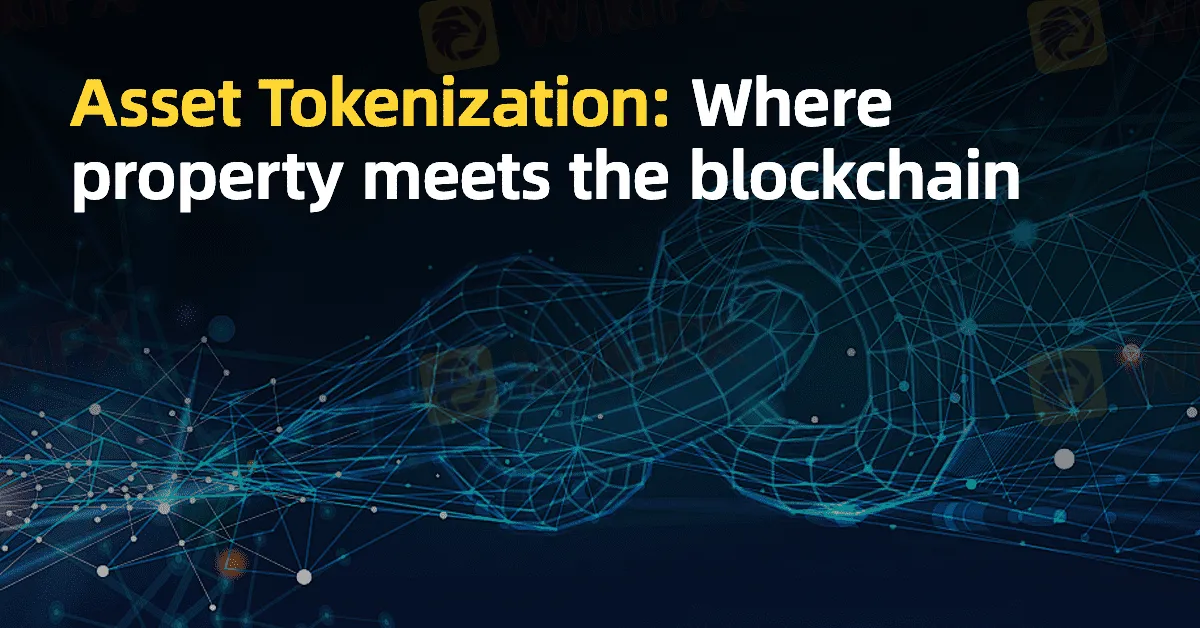简体中文
繁體中文
English
Pусский
日本語
ภาษาไทย
Tiếng Việt
Bahasa Indonesia
Español
हिन्दी
Filippiiniläinen
Français
Deutsch
Português
Türkçe
한국어
العربية
Asset Tokenization: Where property meets the blockchain
Abstract:Asset tokenization is the innovative process of transforming rights to both physical and digital assets into digital tokens on a blockchain.

Understanding Asset Tokenization
Asset tokenization is the innovative process of transforming rights to both physical and digital assets into digital tokens on a blockchain. This process can generate fungible tokens, which are interchangeable, or non-fungible tokens (NFTs), representing distinct assets. The choice of token type hinges on the nature of the asset and its intended application. By enabling tokenization, we can enhance traditional ownership verification methods—like deeds and titles—allowing for more accessible fractional ownership. For instance, tokenizing a commercial property could enable multiple investors to own shares in that property.
Advantages of Asset Tokenization
1. Tokenization allows assets to be divided into smaller, tradable units, facilitating shared ownership among multiple investors.
2. By enabling fractional ownership, tokenization opens the door to asset investments for individuals across various financial backgrounds.
3. Tokenized assets can be more easily traded, potentially enhancing market liquidity.
4. The transparency inherent in blockchain technology ensures that all participants have access to the same information.
5. By reducing the need for intermediaries, tokenization could lower the costs associated with buying and selling assets.
Challenges of Asset Tokenization
1. Legal Recognition Issues: Current legal frameworks may not recognize tokenized asset ownership, creating challenges in enforcement.
2. The rapidly changing landscape of laws surrounding tokenized assets can complicate compliance and diminish investor protections.
3. Tokenized assets, particularly those traded on secondary markets, may experience significant price fluctuations, risking investor capital.
4. Unique assets can be difficult to value accurately, complicating investment decisions.
Conclusion
Asset tokenization marks a transformative step forward in merging real estate with blockchain technology, providing exciting prospects alongside significant hurdles. As this field evolves, stakeholders can explore how fractional ownership and enhanced accessibility can reshape investment landscapes, all while navigating the complexities of regulation and market integration.

Disclaimer:
The views in this article only represent the author's personal views, and do not constitute investment advice on this platform. This platform does not guarantee the accuracy, completeness and timeliness of the information in the article, and will not be liable for any loss caused by the use of or reliance on the information in the article.
Read more

RM1.29 Million Lost in ‘C Baird VIP’ WhatsApp Scam
A 43-year-old company auditor and subcontractor in Malaysia became the latest victim of an elaborate investment scam after losing RM1.29 million to a fraudulent scheme promoted via WhatsApp.

U.S. March ISM Manufacturing PMI Released
The U.S. March ISM Manufacturing PMI data shows that manufacturing has contracted for the first time, and investors should pay attention to future changes and impacts on the sector.

Breaking News! Forex Inflows Surge to $17 Billion
Nigeria's foreign exchange inflows saw a significant increase in the fourth quarter of 2024, reaching $17.39 billion. This growth reflects strong foreign investments and export revenues, bringing new confidence to the market.

Should You Beware of Forex Trading Gurus?
Know the reality behind forex trading gurus, examining their deceptive tactics, inflated promises, and the risks associated with trusting them for financial advice.
WikiFX Broker
Latest News
Exposing the Top 5 Scam Brokers of March 2025: A Closer Look by WikiFX
Gold Prices Climb Again – Have Investors Seized the Opportunity?
Webull Launches SMSF Investment Platform with Zero Fees
Australian Regulator Warns of Money Laundering and Fraud Risks in Crypto ATMs
FCA Warns Against 10 Unlicensed or Clone Firms
CySEC Warns Against 14 Unlicensed Investment Websites
Top Currency Pairs to Watch for Profit This Week - March 31, 2025
Will natural disasters have an impact on the forex market?
Philippines Deports 29 Indonesians Linked to Online Scam Syndicate in Manila
The Withdrawal Trap: How Scam Brokers Lure Victims into Paying More
Currency Calculator







